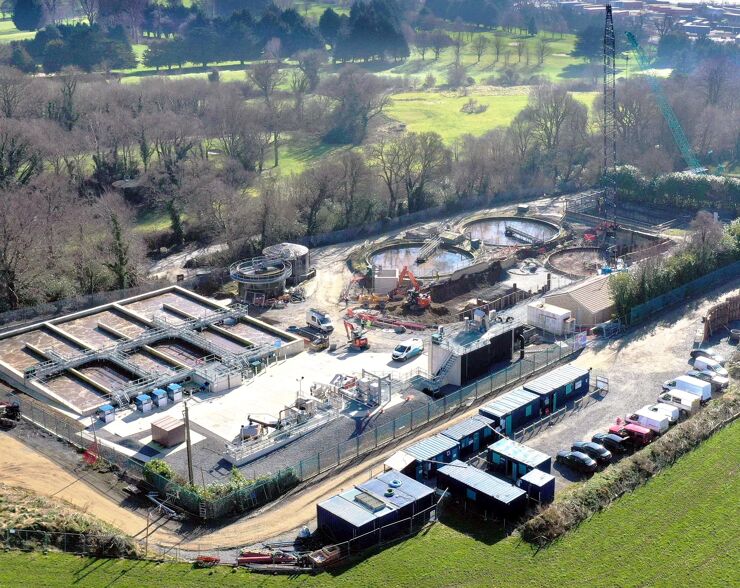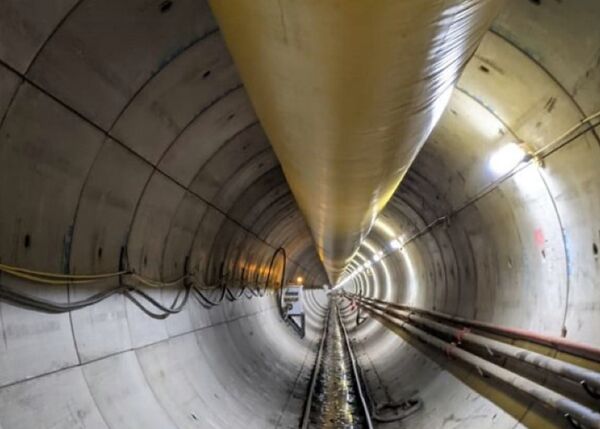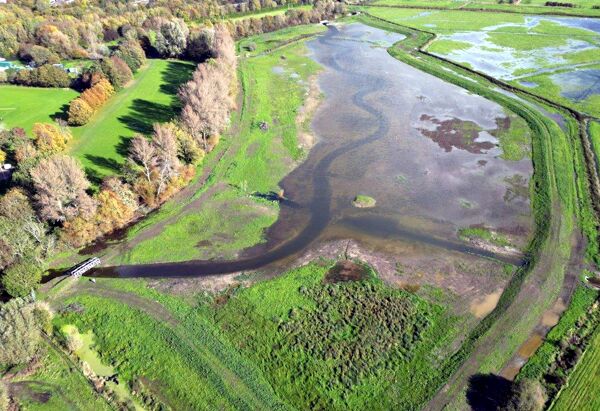
Northern Ireland Water has used a range of NEC contracts on an ongoing EU-funded project to help enhance water quality in the two estuaries shared by Northern Ireland and Ireland.
The €35 million (£30 million) Shared Waters Enhancement and Loughs Legacy (Swell) project is a cross-border partnership between Northern Ireland Water (lead partner), Irish Water, the Agri-Food and Biosciences Institute, Loughs Agency and East Border Region. The scheme aims to improve water quality in the shared estuaries of Lough Foyle in the north and Carlingford Lough in the east through the upgrade of key wastewater assets. It is funded by the EU’s Interreg VA programme managed by the Special EU Programmes Body (SEUPB).
The four-year project involves catchment studies, ecosystem modelling, construction of new wastewater treatment works and upgrades to existing sewerage networks at strategic locations on both sides of the border to address wastewater pollution in Carlingford Lough and Lough Foyle. With match-funding provided by the Department of Housing, Local Government and Heritage in Ireland, and by the Department of Agriculture, Environment and Rural Affairs in Northern Ireland, it will culminate in the development of an innovative ecosystem legacy model that will support further improvements in these shared waters.
All Northern Ireland Water infrastructure contracts, worth a total of €23 million (£20 million), were completed on time and within budget by March 2021. The overall project is on schedule for completion by April 2023.
Early contractor involvement
Northern Ireland Water engaged McAdam in early 2017 as a consultant and NEC project manager under an NEC3 Professional Services Contract (PSC). All contractors were initially engaged for early contractor involvement in the design and scope development stages using NEC3 Engineering and Construction Short Contracts (ECSC).
Northern Ireland Water received approval from SEUPB to use its existing non-infrastructure major works framework to procure contractors by direct award on a rotational call-off basis. For the wastewater design-and-build works, the government-owned company let four separate NEC3 Engineering and Construction Contracts (ECC) Option A (priced contract with activity schedule). The Lough Foyle contracts at Strabane and Donemana wastewater treatment works were carried out by BSG Civil Engineering and Deane Public Works respectively, while the Carlingford Lough contracts at Warrenpoint wastewater treatment works and Newpoint wastewater pumping station in Newry were delivered by Geda Construction and Graham Construction.
Key designers, subcontractors and suppliers were engaged during the typically 18 month works contracts under back-to-back NEC3 Professional Services Short Contracts (PSSC) and NEC3 Engineering and Construction Short Subcontracts (ECSS).
Best-practice procurement
According to project manager Neal Kerr of McAdam, ‘The delivery process used best-practice procurement and contract management underpinned by a range of NEC3 contracts, plus innovation and a truly collaborative approach to deliver this project on time and within budget for Northern Ireland Water.’
He says the ethos of trust and collaboration was established from the outset by the five Swell project partners. ‘Following the award of EU funding, Northern Ireland Water continued with this ethos through the appointment of trusted delivery partners using a variety of NEC3 contract forms, selected to align with the scope and services required.’
Kerr says prior to contracts being awarded, the client held a collaborative workshop with the proposed delivery partners to help inform and guide the way in which each service and construction contract could be delivered. ‘There was some discussion on whether to use NEC3 ECC target cost Options C or D, or the newer NEC4 ECC contracts with the two-stage early-contractor-involvement option X22. The benefits of the latter aligned with the design development and risk allocation required on the complex works projects, but the EU offer prohibited gain/pain incentives. As a result we opted for a negotiated NEC3 ECC Option A preceded by an early contractor involvement process to ensure cost clarity and transparency.’
He says each partner was engaged by the client for early contractor involvement on shorter form contracts, namely the NEC3 PSSC and NEC3 ECSC, using time charges. ‘This was to help develop and understand the scope of the main delivery contracts, how best to reduce and allocate risks within those contracts, how to establish cost certainty and how to ensure transparent, regular payment.’
Allocating risk
Kerr says that there was a mutual agreement by all parties to implement fully the NEC clause 10.1 obligation to act in a, ‘sprit of mutual trust and co-operation’.
‘This allowed all parties to explore the complexities of each of the four construction projects and agree suitable allocations of risk to help deliver a balanced and fair approach with cost certainty. Detailed activity schedules were developed to help the contractors with cashflow throughout the project, but also to help provide transparency of costs, confirmation of value for money and finally evidence for the client and EU should an audit process be required.’
He concludes, ‘By March 2021, the four construction projects were successfully delivered within the time, quality and cost parameters established in each contract. Looking forward, an NEC-based two-stage delivery approach will now be used on the majority of the client’s 2021−27 capital delivery programme.’
Benefits of Using NEC
- NEC provided a suite of integrated best-practice procurement contracts suitable for all members of the project team and their suppliers, appropriate to the scopes and services required.
- NEC flexibility enabled all EU funding requirements to be met, with time-charge short contacts for design development and scope definition, and negotiated fixed-price main contracts providing cost clarity and transparency.
- NEC obligation to act in a, ‘sprit of mutual trust and co-operation’ ensured a collaborative approach was maintained through the consultancy and works contracts, with agreed allocations of risk delivering a balanced and fair approach.



